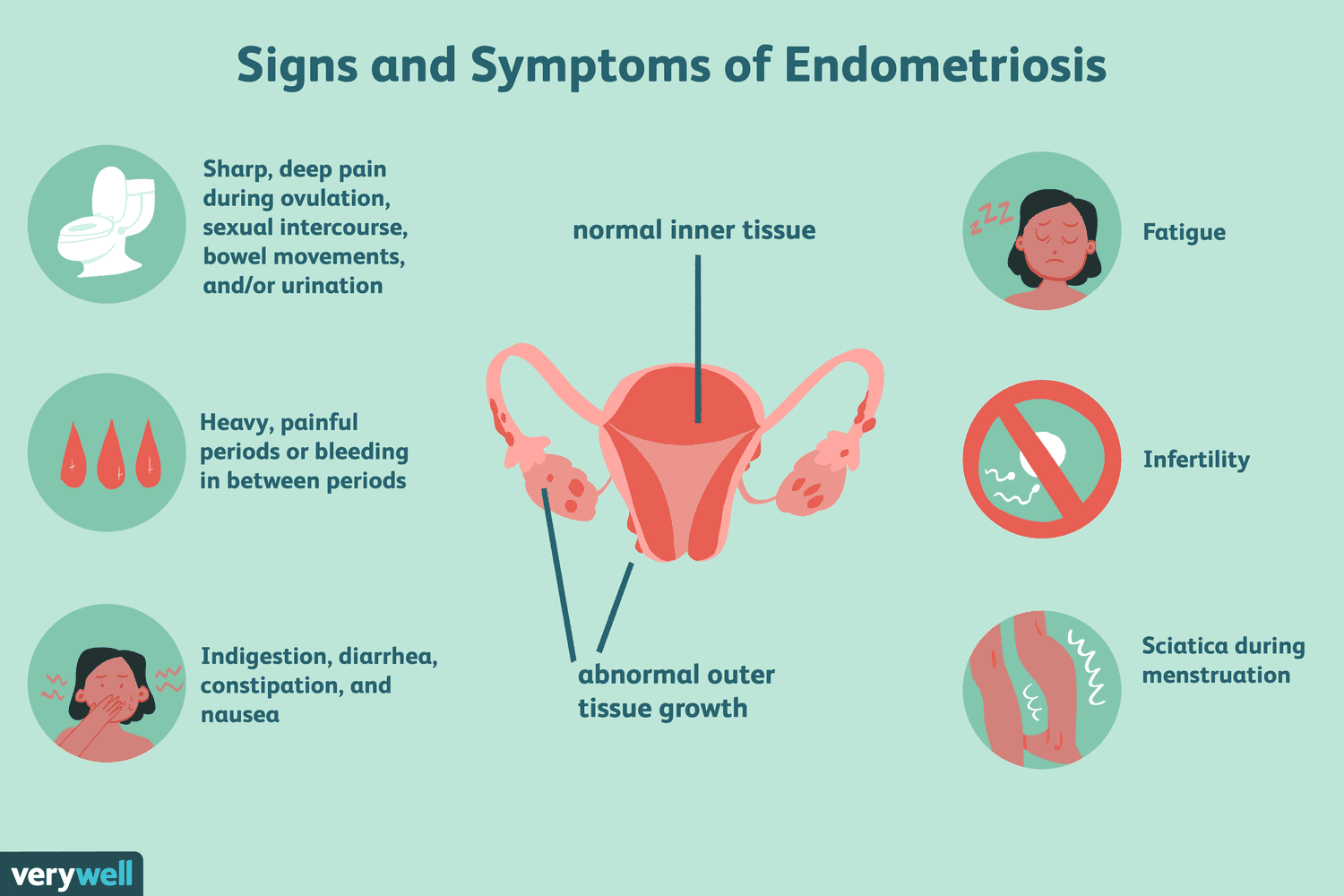Endometriosis is a chronic and often debilitating gynecological condition that affects an estimated 10% of women worldwide. It is characterized by the abnormal growth of endometrial tissue outside of the uterus, causing a variety of symptoms such as pelvic pain, heavy periods, and infertility. While the exact cause of endometriosis is still unknown, there has been a growing interest in the potential role of diet in its development and management. In particular, there has been a significant focus on the relationship between consuming dairy products and endometriosis. With dairy being a staple in many cultures and diets, it is crucial to understand the potential impact it may have on this prevalent condition. This article will explore the current research on the link between dairy consumption and endometriosis, providing a comprehensive overview of the potential impact on women’s health. By examining the scientific evidence and potential mechanisms, we hope to shed light on this controversial topic and provide valuable insights for individuals with endometriosis and their healthcare providers.
Endometriosis and Dairy: What’s the Connection?

Emerging research suggests a potential connection between endometriosis and the consumption of dairy products. Endometriosis is a chronic condition where tissue similar to the lining of the uterus grows outside of it, causing pain and fertility issues. While the exact cause of endometriosis remains unknown, some studies have shown that certain chemicals, such as hormones found in dairy products, may contribute to the development and progression of the disease. These hormones, commonly present in cow’s milk, can potentially stimulate the growth of endometrial tissue outside of the uterus. However, further research is needed to establish a definitive link between dairy consumption and endometriosis. In the meantime, individuals with endometriosis may consider exploring alternative dairy options or limiting their intake to see if it alleviates their symptoms. It is always advisable to consult with a healthcare professional for personalized advice and guidance regarding dietary choices for managing endometriosis.
Hormones in Dairy Affect Endometriosis Symptoms
Emerging research suggests that the hormones found in dairy products may have an impact on the symptoms of endometriosis. Endometriosis is a chronic condition characterized by the growth of tissue similar to the lining of the uterus outside of it, leading to pain and fertility issues. While the exact cause of endometriosis is still unclear, studies have shown that hormones commonly present in cow’s milk, such as estrogen and progesterone, could potentially stimulate the growth of endometrial tissue outside of the uterus. However, it is important to note that further research is needed to establish a definitive link between dairy consumption and endometriosis. In the meantime, individuals with endometriosis may consider exploring alternative dairy options or limiting their intake to see if it helps alleviate their symptoms. It is always advisable to consult with a healthcare professional for personalized advice and guidance regarding dietary choices and symptom management.
Dairy Consumption May Increase Inflammation

Increasing evidence suggests that dairy consumption may contribute to inflammation in the body. Inflammation is a natural response of the immune system to protect against injury and infection. However, chronic inflammation can be detrimental to overall health and has been linked to various diseases, including cardiovascular conditions, autoimmune disorders, and certain types of cancer. Dairy products, particularly those high in saturated fats, have been shown to increase the production of pro-inflammatory molecules in the body. This can lead to a cascade of inflammatory responses that may exacerbate existing health conditions or increase the risk of developing chronic diseases. As part of a comprehensive approach to managing inflammation, individuals may consider reducing their consumption of dairy products and exploring alternative sources of nutrients to support their overall health and wellbeing. It is recommended to consult with a healthcare professional or registered dietitian for personalized guidance on dietary choices and inflammation management strategies.
Lactose Intolerance and Endometriosis Flare-Ups
Individuals with endometriosis may also experience flare-ups when consuming dairy products due to lactose intolerance. Lactose intolerance is the inability to digest lactose, a sugar found in milk and dairy products. When individuals with lactose intolerance consume dairy, it can lead to digestive symptoms such as bloating, gas, abdominal pain, and diarrhea. These digestive disturbances can trigger inflammation and discomfort, potentially worsening endometriosis symptoms. Managing lactose intolerance by avoiding or reducing dairy consumption may help alleviate these flare-ups and improve overall well-being for individuals with endometriosis. Exploring lactose-free or dairy alternatives can provide necessary nutrients without exacerbating symptoms. Consulting with a healthcare professional or registered dietitian can offer personalized guidance on managing lactose intolerance and optimizing nutrition while managing endometriosis.
Alternative Calcium Sources for Endometriosis Sufferers

To ensure adequate calcium intake for individuals with endometriosis who avoid or limit dairy products, it is important to explore alternative calcium sources. Fortunately, there are a variety of calcium-rich foods that can be incorporated into a balanced diet. Leafy green vegetables such as kale, broccoli, and spinach are excellent sources of calcium and can be easily incorporated into meals or smoothies. Additionally, fortified plant-based milk alternatives, like almond or soy milk, can provide a significant amount of calcium. Other options include tofu, canned fish with bones such as salmon or sardines, and seeds such as chia and sesame seeds. It is important to note that calcium absorption can be enhanced by consuming foods rich in vitamin D, such as fatty fish or fortified dairy alternatives, and by maintaining a healthy level of physical activity. A healthcare professional or registered dietitian can provide personalized recommendations on incorporating these alternative calcium sources into a well-balanced diet specific to individual needs and preferences.
Dairy-Free Diet for Managing Endometriosis
Individuals with endometriosis may consider adopting a dairy-free diet as a means of managing their symptoms and promoting overall well-being. While research on the direct impact of dairy consumption on endometriosis is limited, many women have reported improvements in symptoms such as pelvic pain and inflammation after eliminating dairy from their diet. Dairy products contain high levels of hormones and pro-inflammatory substances, which may exacerbate the symptoms of endometriosis. By eliminating dairy, individuals can reduce the intake of these substances and potentially alleviate symptoms. It is important to ensure adequate intake of essential nutrients like calcium and vitamin D when following a dairy-free diet. Incorporating alternative calcium sources such as leafy green vegetables, fortified plant-based milk alternatives, and other calcium-rich foods can help meet the nutritional needs of individuals with endometriosis. Consulting with a healthcare professional or registered dietitian is advisable to ensure a balanced and nutrient-rich dairy-free diet that suits individual needs and optimizes symptom management.
Studies on the Dairy-Endometriosis Link
Recent studies have aimed to explore the potential link between dairy consumption and endometriosis. A study published in the journal Human Reproduction found that women who consumed more than three servings of dairy per day had an increased risk of developing endometriosis compared to those who consumed less than one serving per day. Another study published in the American Journal of Obstetrics and Gynecology suggested that high intake of dairy products, specifically milk and cheese, may be associated with a higher risk of developing endometriosis. However, it is important to note that these studies do not establish a direct cause-and-effect relationship, and further research is needed to fully understand the potential mechanisms behind this association. Despite the limited evidence, these findings provide insight into the possible role of dairy in endometriosis and may warrant further exploration in future studies.
Consult with your doctor first.

It is crucial to consult with your healthcare provider before making any significant changes to your diet or lifestyle, especially if you have been diagnosed with or suspect you may have endometriosis. Your doctor can provide personalized advice based on your individual health history, symptoms, and specific needs. They will be able to evaluate the current scientific evidence, consider any potential interactions with your current treatment plan, and guide you in making informed decisions regarding your diet and dairy consumption. Consulting with your doctor ensures that any dietary changes you make are done in a safe and appropriate manner, taking into account your overall health and well-being.
In conclusion, while there is currently no definitive evidence linking dairy consumption and endometriosis, it is important for individuals with this condition to consider and monitor their dairy intake as part of a comprehensive treatment plan. Each person’s experience with endometriosis may vary, and implementing dietary changes may have different effects for each individual. It is recommended to consult with a healthcare professional for personalized guidance and to continue researching the potential relationship between endometriosis and dairy consumption.
FAQ
Is there a scientific link between consuming dairy products and the development or worsening of endometriosis symptoms?
There is limited scientific evidence to suggest a direct link between consuming dairy products and the development or worsening of endometriosis symptoms. Some studies have observed an association between high dairy intake and increased risk of developing endometriosis, while others have found no significant link. It is important to note that individual responses to dairy products may vary, and more research is needed to establish a clear scientific connection. As with any dietary choice, it is advisable for individuals with endometriosis to listen to their bodies and consult with healthcare professionals for personalized advice.
How does consuming dairy products affect hormone levels in individuals with endometriosis?
Consuming dairy products can potentially affect hormone levels in individuals with endometriosis due to the presence of hormones in dairy products. Some studies suggest that these hormones may contribute to hormonal imbalances and inflammation in the body, which can worsen endometriosis symptoms. However, more research is needed to fully understand the specific impact of dairy consumption on hormone levels and symptoms in individuals with endometriosis. It is recommended that individuals with endometriosis monitor their own symptoms and consult with a healthcare professional to determine how dairy products may affect their condition.
Are there specific dairy products that are more likely to trigger endometriosis symptoms?
There is limited scientific evidence to suggest that specific dairy products are more likely to trigger endometriosis symptoms. Some women with endometriosis may find that high-fat dairy products worsen their symptoms, potentially due to their estrogen content. However, individual sensitivities and reactions to dairy can vary greatly, so it is important for each person to listen to their body and identify any specific triggers through a process of trial and error. Consulting with a healthcare professional or registered dietitian can also provide personalized guidance on managing endometriosis symptoms through dietary choices.
Are there any studies or research suggesting that eliminating dairy products from the diet can improve endometriosis symptoms?
There is limited scientific evidence suggesting that eliminating dairy products from the diet may improve endometriosis symptoms. Some studies have found a potential link between dairy consumption and increased inflammation, which is a characteristic of endometriosis. However, more research is needed to fully understand the impact of dairy on endometriosis symptoms. It is important for individuals with endometriosis to consult with a healthcare professional before making any major changes to their diet.
What are some alternative calcium-rich food sources for individuals with endometriosis who choose to avoid dairy products?
Some alternative calcium-rich food sources for individuals with endometriosis who avoid dairy products include leafy green vegetables such as kale and spinach, almonds, sesame seeds, tofu, sardines, and fortified non-dairy milk, like almond or soy milk. These options can help ensure an adequate intake of calcium to support bone health, without relying on dairy products.















































